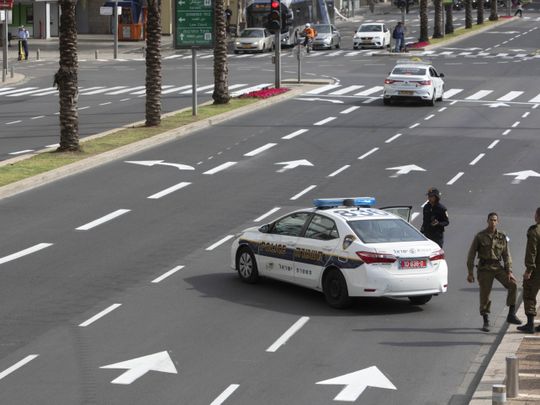
Tel Aviv: When Israel’s health minister was found to be infected with the coronavirus early this month, all high-level officials in close contact with him were quarantined, including one who stood out: the director of the Mossad, the Israeli regime’s spy service.
Mossad officers, primarily associated with covert operations abroad in the name of protecting Israel, are not normally in the business of public health. So Israelis were immediately intrigued.
Why would the Mossad director, Yossi Cohen, a widely respected figure in the country, have even been in the same room as the health minister, Yaakov Litzman?
Cohen’s powerful agency, it turns out, has been deeply involved in Israel’s fight against the virus, and has been one of the country’s most valuable assets in acquiring medical equipment and manufacturing technology abroad, according to Israeli medical and security officials.
As countries around the world compete ferociously for limited supplies during the pandemic, they are turning to any help available, and flexing their muscles unapologetically.
And with the Mossad having determined that Iran - struggling with its own coronavirus crisis - no longer represents an immediate security threat, the agency could afford to immerse itself in the health emergency, according to multiple people knowledgeable about its operations.
Initial predictions for the toll of the virus in Israel were dire, though so far they have proved too pessimistic. With nearly 11,000 cases of the virus now confirmed and 103 deaths, Israel does not rank among the hardest-hit countries in the world.
“The peak expansion rate has been behind us for about two weeks now, and will probably wane almost completely within two weeks,” said an article published on Sunday by Professor Isaac Ben Israel of Tel Aviv University.
But in early February, officials at Sheba Medical Centre, Israel’s biggest hospital, realised that they needed more ventilators and other gear. And around that time, Professor Yitshak Kreiss, the director general of the hospital, met with Cohen, the Mossad chief, at a private event involving a mutual friend - not unusual in a small country where senior figures often move in the same social circles.
By then, Cohen had already begun to assess how the Mossad could help the Israeli health system. Kreiss said he enumerated the most urgent equipment needs to Cohen, who obtained further lists from the Health Ministry, and the Mossad began activating its international network to find the items needed.
Kreiss declined to say precisely how Mossad officers had helped the Israeli medical establishment or where the imported equipment came from. But according to six current or former Israeli officials with knowledge of the Mossad’s operations, the agency used international contacts to avert shortages that might have overwhelmed Israel’s health system.
The six people, who spoke on the condition of anonymity because the Mossad’s activities are classified, said the spy agency’s contacts had proved invaluable in enabling the regime to acquire ventilators and testing material that Litzman’s Health Ministry had been unable to secure. Despite those efforts, however, there is still a lack of testing capacity in Israel.
These people would not confirm non-Israeli media reports that some of the items were acquired from neighbouring Arab nations with no official diplomatic relations with Israel.
But at least one senior Mossad official acknowledged in an interview with Ilana Dayan, host of “Uvda,” or “Fact,” Israel’s Channel 12 TV newsmagazine, that in some instances, the agency had acquired items that other countries had already ordered.
To some extent, the Mossad’s intervention in the pandemic is an acute embarrassment for officials of the Health Ministry, who ordinarily speak freely to the media but declined to comment on any aspect of the spy service’s role.
Not ready
That the country’s health system had to enlist Mossad was evidence that it had not readied itself to respond to the type of threat represented by the coronavirus, according to a high-ranking figure in the Israeli health system, who requested anonymity because he was criticising the ministry’s directorate.
The first shipment acquired abroad by the Mossad arrived in Israel on a special flight on March 19: 100,000 coronavirus testing kits, said an official from the prime minister’s office.
Subsequent shipments included more testing kits, 1.5 million surgical masks, tens of thousands of N-95 masks, protective overalls for first-aid crews, protective goggles and a range of medications, according to a high-ranking official knowledgeable about the Mossad operation.
The Mossad also helped obtain technology from outside Israel that have enabled many Israeli laboratories to conduct coronavirus tests. Mossad operatives also secured the necessary know-how to produce ventilators in Israel.
Using technological expertise brought in by the Mossad, production lines that can produce 25 million protective masks a month are gradually being set up, a high-ranking security official said.
According to one senior Israeli official, the Mossad knew it had to act urgently, with the demand for such equipment expected to grow and with the understanding that countries would eventually refuse to export essential medical products.








